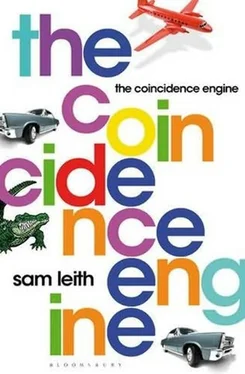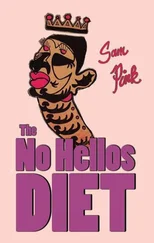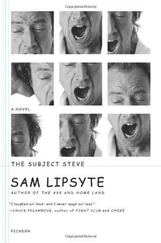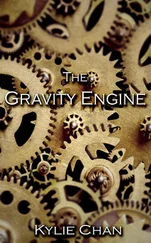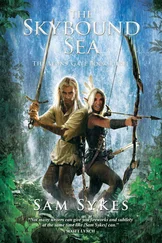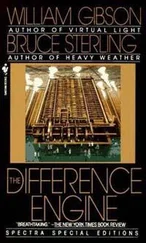Then, peering into a glass display cabinet at a selection of silver-black necklaces and brooches with topaz and coral in dented settings, he saw the ring. As he looked at it he thought – in a way that felt light and easy – that perhaps he would ask Carey to marry him, and that this was the ring that he would present to her.
It was sitting upright in a cheap jewellery box. He liked the design, the antique look, the silvery sheen. The ring set his chain of thought in motion, there, while he waited for the rain to stop. But once he had thought it, it seemed right and natural. It was a thought that had been waiting for a thought-shaped slot in his head to occupy, and there it was. They would get married. He would get a cheap flight to the States, and he would go to San Francisco and surprise her with a ring.
The ring was two hundred pounds. Alex could find that. Just. He’d be eating pasta with butter for a bit, but he could find it. He asked the supposed Owse to put the ring aside for him. Wrote his name and mobile phone number, promised to come back the following day. And by the time he stepped out of the shop into the lane, the bell above the door dinging sweetly, shaking a few drops of rain onto Alex’s head, the sun was just breaking through the clouds.
And so to Jones, and to Bree – our two supernatural detectives – hot on the heels of this fugitive device. Jones was driving, and Bree was eating.
Bree had worried about Jones driving. The worry started not long after they had gone over a large and tricky interchange through a just-red light that Bree wouldn’t have risked. She had read the cross traffic – three lanes of impatient metal, a terminal moraine of shining chrome, pregnant with the intention of surging over their carriageway at the first click of their light to green. They had seemed to heave. Jones had piloted their car serenely through.
‘Jones,’ she had said, her thigh cramping with the effort of pumping an imaginary brake, ‘with your condition…’
‘Uh-huh,’ Jones had said.
‘How good are you at anticipating things?’
‘Not very,’ Jones had said. The speedo had been nudging eighty.
‘Things like cars pulling out suddenly, or appearing from dips in the road while you’re overtaking…’
‘Uh-huh,’ Jones had said. He had appeared to have no idea of the drift that the conversation was taking.
‘Are you good at anticipating those?’
‘I don’t know,’ Jones had said. ‘I don’t think so. Which cars are you talking about?’ He had looked around, scanning the road, meerkatted into the rear-view mirror, peered ahead down the road, as if to see what Bree was referring to.
‘Not actual cars here ,’ Bree had said. ‘I mean, any cars. Cars you might anticipate. Cars that might pull out or appear from nowhere.’
‘Cars that don’t exist?’
Bree had realised the problem, and fallen silent. Jones’s relationship with time was not, she remembered, the easiest thing to navigate. Nor his relationship with notional cars.
‘Jones, your head is a strange thing.’
‘It is the only head I have,’ Jones had said. ‘I have nothing to compare it with.’
Bree had thought of a better way of putting it. She had asked: ‘Have you ever crashed a car?’
‘I have fast reactions,’ Jones had said.
‘That’s not answering the question,’ Bree had said.
‘Yes,’ Jones had said.
Bree had shrugged. She had let it go. Someone believed Jones could drive. Someone had given him a licence. They hadn’t crashed. And Bree hated to drive.
So here they were. Jones driving – slowly, at Bree’s insistence – and Bree eating an egg-salad sandwich and a big bag of Doritos. It was a beautiful morning. Everything felt light and good. It was one of those mornings when Bree felt a lightness. The weird thing with the crying had shifted Jones in the way she thought about him. She had thought, at first, that he was handsome. But Bree reckoned she thought everyone was handsome. She hadn’t been with anyone for a long time. Then she had thought he was freaky, which he was. But now she felt maternal towards him – and she was surprised to find that feeling warmed her.
‘Look at that,’ she said, holding up a Dorito. ‘That orange. Nothing in nature is that orange.’
Jones looked at her Dorito.
‘An orange is that orange,’ he said.
Bree ignored him. She put her feet on the dashboard. ‘Damn,’ she said, munching happily. ‘What did they do before Doritos?’
Bree and Jones continued west, stopping to use landlines, where they could, to contact Red Queen. Data points came back: here, a probable sighting; there, a CCTV image of the Smart boy in a gas station forecourt. They were going in the right direction, feeling their way half blind after their quarry. They discovered, only twelve hours afterwards, that he’d been in the same motel in Tupelo.
Bree did most of the talking. Jones almost never originated conversation, but Bree poked and prodded. Bree had become curious about Jones. She asked him what he did when he wasn’t doing what they were doing.
‘I’m not usually a field agent,’ said Jones. ‘I work in a small department in Washington. I go through data.’
Bree raised an eyebrow. ‘Most of the Directorate’s desk work is in New York,’ she said.
‘I work for different agencies,’ said Jones. ‘I work in a small department. My condition is useful to agencies looking at data. I can find inconsistencies. I don’t suffer confirmation bias.’
‘What’s confirmation bias?’ Bree asked. Bree was smart, but Bree couldn’t fill out a tax return. When she’d been at school, statistics and math had swum before her on the page. They’d role-played a business class when she’d been a teenager, and when presented with a pretend balance sheet she had gone red and found herself giggling with fright and embarrassment.
‘People see patterns that aren’t there,’ said Jones. ‘They see what they want to see. I don’t. I see only what’s there.’
‘Is that rare?’
‘They say so. Much of the work I do is with tax. But also climate data. I check the algorithms used to identify terror suspects.’
‘Sounds interesting,’ said Bree, thinking otherwise. Sifting data. Jeezus. ‘You get bored?’
‘No,’ said Jones. ‘Never.’ Bree had lost the ability to be surprised by this.
His tone was light and his eyebrows remained in position.
‘What do you do to relax?’ Bree said.
‘I smoke. I do Sudoku. I cook.’
‘You cook?’ Bree said. Her interest was piqued. She couldn’t imagine Jones cooking. Bree loved to cook. She cooked a lot. It was one of the things she did to pass the time when otherwise she would have been drinking.
‘I was told I needed a hobby,’ Jones replied. ‘ “Take your mind off things.” I cook every evening and on weekends I cook twice a day. I like food.’
‘What you can taste of it through all those cigarettes…’ Bree interjected.
Jones didn’t sound in the slightest defensive. ‘I have a good sense of taste.’
‘What do you like to cook, then?’
‘I’ve cooked all of Julia Child and Larousse Gastronomique and Robert Carrier’s Great Dishes of the World and Delia Smith’s Summer Collection . I am on number 467 of Marguerite Patten’s Cookery in Colour .’
Bree had an image of Jones, solemn and methodical, dressed in an apron and a chef’s hat, in the kitchenette of some anonymous and undecorated apartment in which he would be entirely at home. She imagined him holding a burger flipper. He would look like an illustration.
‘Black Cap Pudding,’ said Jones. ‘Put a good layer of stoned prunes or blackcurrant jam at the bottom of the basin.’
Читать дальше
